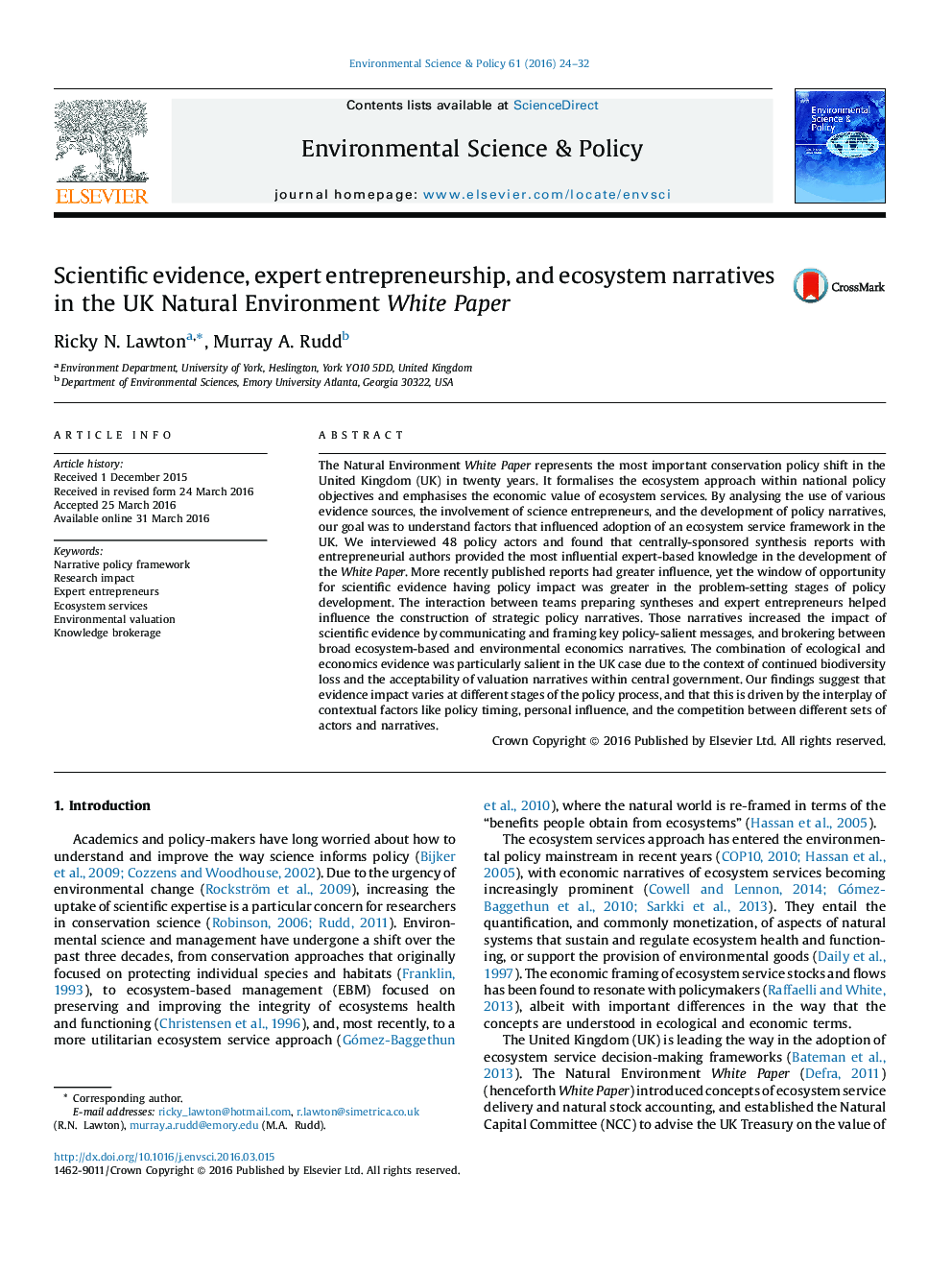| Article ID | Journal | Published Year | Pages | File Type |
|---|---|---|---|---|
| 7466792 | Environmental Science & Policy | 2016 | 9 Pages |
Abstract
The Natural Environment White Paper represents the most important conservation policy shift in the United Kingdom (UK) in twenty years. It formalises the ecosystem approach within national policy objectives and emphasises the economic value of ecosystem services. By analysing the use of various evidence sources, the involvement of science entrepreneurs, and the development of policy narratives, our goal was to understand factors that influenced adoption of an ecosystem service framework in the UK. We interviewed 48 policy actors and found that centrally-sponsored synthesis reports with entrepreneurial authors provided the most influential expert-based knowledge in the development of the White Paper. More recently published reports had greater influence, yet the window of opportunity for scientific evidence having policy impact was greater in the problem-setting stages of policy development. The interaction between teams preparing syntheses and expert entrepreneurs helped influence the construction of strategic policy narratives. Those narratives increased the impact of scientific evidence by communicating and framing key policy-salient messages, and brokering between broad ecosystem-based and environmental economics narratives. The combination of ecological and economics evidence was particularly salient in the UK case due to the context of continued biodiversity loss and the acceptability of valuation narratives within central government. Our findings suggest that evidence impact varies at different stages of the policy process, and that this is driven by the interplay of contextual factors like policy timing, personal influence, and the competition between different sets of actors and narratives.
Related Topics
Physical Sciences and Engineering
Energy
Renewable Energy, Sustainability and the Environment
Authors
Ricky N. Lawton, Murray A. Rudd,
